Back when I was an oily and acne-prone teenager, my mom used to tell me that someday I’d be grateful for the gift that is oily skin. Her reasoning? Oily skin tends to age better and result in fewer lines and wrinkles, but I’m still waiting for those benefits to kick in!
Oily skin can be a contradiction, though. With so much oil, it makes you feel like you need to wash your face more often to keep the shine at bay. Unfortunately, over-washing is one of the quickest ways to find yourself coping with oily skin.
Harsh scrubs and cleansers can overstimulate your pores to produce even more oil. While the thought of using actual oil to wash your face might sound crazy, it’s actually quite smart. Oil dissolves oil and helps clear out pores and regulate the skin’s oil production. Read on for more oily skin tips and our favorite oily skin face mask recipes:
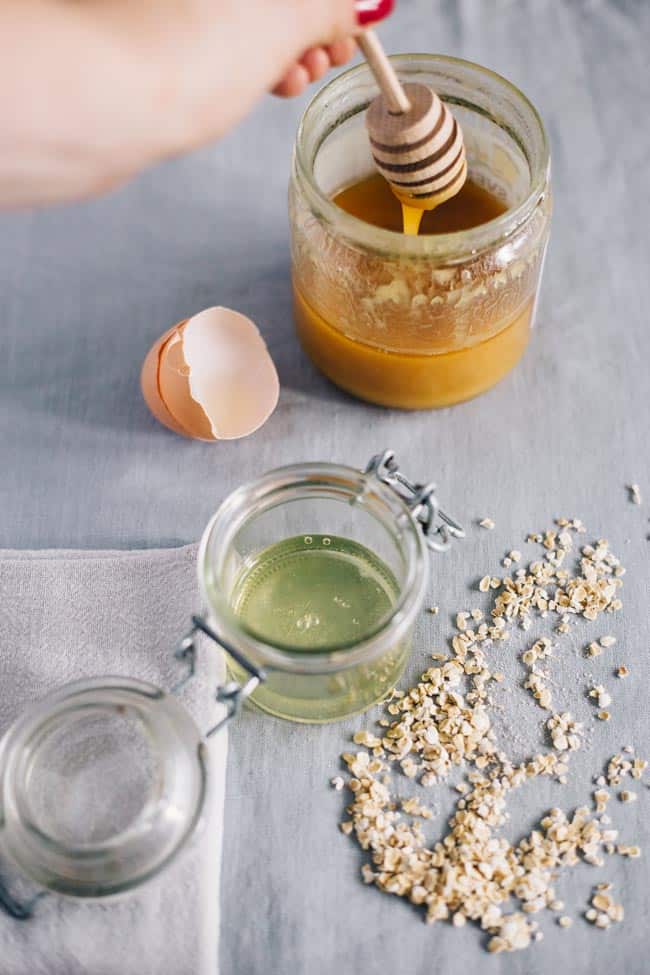
Meet the experts
Dr. Marisa Garshick, a board-certified dermatologist at Medical Dermatology & Cosmetic Surgery (MDCS) in New York
Brendan Camp, M.D., a board-certified dermatologist at MDCS Dermatology
Todd Minars, M.D., a board-certified dermatologist at Minars Dermatology in Hollywood, Florida
Is oily skin normal?
As it turns out, oily skin is perfectly normal. In fact, sebum, or oil, production is an important and necessary process that occurs in the skin, explains Brendan Camp, M.D., a board-certified dermatologist at MDCS Dermatology. “Sebaceous glands secrete oil through pores that coat the surface of skin to help seal in moisture. The oil minimizes frictional forces on the skin and protects the skin from infections,” he says.
What causes oily skin?
There are plenty of factors that can influence the oiliness of a person’s skin. The first has to do with your genetics. It’s not uncommon for someone with oily skin to have a parent or a sibling who also experiences it, explains Marisa Garshick, M.D., a dermatologist at Medical Dermatology & Cosmetic Surgery (MDCS) in New York.
Age is another factor. “Many people find that their skin is more oily during their teenage years, and as they get older, the skin may produce less oil,” says Dr. Garshick. “The combination of less oily skin and weakening of the skin barrier with age can give it a dry and dehydrated appearance.”
Lifestyle habits like washing your face too vigorously and too often can also be a culprit. This might sound counterintuitive, but over-washing your face can strip your skin of its natural oils, causing it to ramp up oil production and leaving you even shinier. Todd Minars, M.D., a dermatologist at Minars Dermatology in Hollywood, Florida, recommends washing your face just twice daily—in the morning and at night. “Do that for a couple of weeks, and see how your skin (and the shine) reacts to the decreased frequency,” he says.
10 Oily Skin Face Masks
Sometimes you need a little extra assistance with getting rid of the excess oil, dead skin cells, and dirt clogging your pores. Anyone else tend to break out more during the holidays? Maybe it’s the extra time at the stove—or the stress!
A grease-cutting face mask can do the trick. Here are 10 ways to combine natural astringents with oil-absorbing ingredients to tone your skin, soak up oil, and draw out impurities.
1. Activated Charcoal Mask for Oily Skin
Charcoal acts like a magnet for bacteria, debris, oil, dirt, and dead skin cells, cleansing the skin and reducing oil by drawing these things out from deep within pores, explains Dr. Camp. “These impurities are then flushed away along with the charcoal when the face mask is rinsed off,” he says.
—1 tablespoon bentonite clay
—1 tablespoon activated charcoal
—2 tablespoons water
—Rosehip or grapeseed oil (optional)
Mix the ingredients into a bowl along with a few drops of oils like rosehip or grapeseed oil for added hydration. Apply the mixture to your face with clean fingers, and make sure to get the areas most prone to shine. Leave on for 10–15 minutes before rinsing off.
2. Baking Soda Face Mask
This kitchen staple can serve as a skin savior when included in a DIY mask. It gently scours the skin surface and facilitates the process of exfoliation, cleans out pores, and may help treat blackheads and whiteheads, explains Dr. Camp.
—1 tablespoon water
—1 tablespoon baking soda
Mix together the baking soda and water to create a paste that you can apply to your skin. Leave it on for 10 minutes, and then rinse it away with warm water.
“Baking soda can help reduce the appearance of blackheads and clogged pores, and it also has antimicrobial and anti-inflammatory benefits,” says Dr. Garshick. “It is important not to overdo it as it can contribute to irritation and inflammation.”
3. Clay + Witch Hazel Mask
Clay provides deep pore cleansing by absorbing excess oil and pulling out impurities and dirt, while witch hazel works as an effective astringent that makes the pores tighten as they dry.
—1 tablespoon witch hazel
—1 teaspoon bentonite clay
—2 drops lemon essential oil (optional)
Combine the ingredients, but don’t use metal spoons or bowls to mix. Stir the mixture until well blended. Apply it to your skin with clean fingers and leave on for 10 minutes. Super oily skin types can leave it on for up to 20 minutes. Rinse off with warm water.
4. Egg White Honey Mask
Egg whites are often used in masks to tighten and tone skin, which essentially means they are helping to dry out the skin. Ground oats act as an anti-inflammatory [source] and absorb oil and exfoliate dead skin that can clog pores. Add a bit of honey for its skin healing benefits [source].
—1 egg white
—1 teaspoon honey
—Ground oats or flour
Whip together the egg white and honey until well combined and a bit frothy. Add ground oats or flour until you have a paste. Apply to your face (avoid the eyes) and massage the paste gently into the skin. Leave the mask on for 10 minutes and remove with warm water.
5. Lemon Apple Mask
Lemon and apple both contain alpha-hydroxy acids, natural fruit acids that exfoliate skin and remove oil [source]. Sage is an herb with astringent properties [source] that can tighten and close pores. You can also try dried lavender or peppermint for similar effects.
—1 tablespoon applesauce
—1 teaspoon lemon juice
—1 teaspoon dried sage
Combine the ingredients and apply to your face. Leave on for 5–10 minutes and remove with warm water.
6. Nutmeg Spot Treatment Mask
Combine these three acne fighters to tame inflammation and shrink a pimple fast—without leaving your skin dry or flaky.
—1 aspirin tablet, not enteric-coated
—¼ teaspoon nutmeg
—1 tablespoon plain yogurt
Crush the aspirin tablet down to a powder, and put it in a small bowl. Add the nutmeg and yogurt, and stir to make a paste. Gently dab the paste on the zit. Leave it on for 10–15 minutes, then rinse with warm water.
7. Apple Cider Vinegar + Clay Face Mask
Clay promotes collagen production [source] and detoxifies by absorbing excess oil and impurities deep down inside the pores. The natural acids in apple cider vinegar shrink pores to limit the secretion of excess oil and gently slough away dead skin cells.
—2 tablespoons bentonite clay
—1 tablespoon raw, organic apple cider vinegar
—2 tablespoons water
Combine the clay and probiotic powder in a small bowl. Add the water and apple cider vinegar to make a paste (add more water if needed).
With clean fingers, spread the mask over your face and let it sit for 10 minutes. Rinse with cool water and apply moisturizer. Repeat twice a week to maintain shine-free skin.
8. Witch Hazel Sheet Mask
Sheet masks are super fun and on-trend, but buying too many of them can really break the bank. So make your own DIY sheet masks with a simple tissue! After all, the sheet is simply a vehicle to transport the liquids and other ingredients to the skin’s surface.
Tea tree’s antibacterial properties [source] are a great addition to any sheet mask—especially for those battling acne—while witch hazel is an astringent that tightens the skin and soothes inflammation [source].
—¼ cup distilled water
—¼ cup witch hazel
—2 drops tea tree oil
Combine the water, tea tree oil, and witch hazel in a bowl and mix well. Cut or tear a tissue in half at the fold so you have two pieces, one for the top half and another for the bottom half of your face.
Place the tissue halves into the bowl to absorb the liquid. Once saturated, remove the tissue from the bowl and apply to the face. Leave the sheets on for 10–15 minutes, then remove and pat dry. Rinsing is optional for this mask but follow with appropriate serum or moisturizer.
9. Potato + Green Tea Overnight Mask
Wearing a healing mask all night allows our skin the chance to heal and repair cells, balance oil production, and expel impurities. This mask takes advantage of the anti-inflammatory properties of potato juice and the antioxidants and acne-fighting antibacterial agents in green tea [source].
—1 tablespoon raw potato juice
—1 tablespoon green tea
Take a clean, washed potato and juice it to extract 1 tablespoon of potato juice. Steep 2 bags of green tea in hot water for 10 minutes, and then set aside to cool.
Once the tea has cooled, combine 1 tablespoon of green tea with the potato juice. Dip a cotton pad (or a reusable cleansing pad) in the solution and apply to a clean face, taking your time to cover any clogged areas or blemishes. In the morning, use your normal facial cleanser and follow with your daily skincare routine.
10. Moroccan Red Clay + Rosewater Mask
Moroccan red clay is an ideal choice for balancing oily skin and unclogging pores. It's an antibacterial agent [source] that absorbs excess oil and is often used in recipes for deodorant and masks. Mined in the mountains of Morocco, this clay deep cleanses the pores while stimulating circulation.
—3 tablespoons rosewater
—1 teaspoon mashed avocado
—2 tablespoons Moroccan red clay
Combine the rosewater, avocado, and clay powder in a bowl and stir thoroughly. Keep mixing until a smooth paste is created and all the clay has been incorporated.
Using clean fingers, apply the mask to oily or acne-prone areas. As soon as the mask starts to lighten (usually a sign it is getting dry), rinse off with warm water.
182
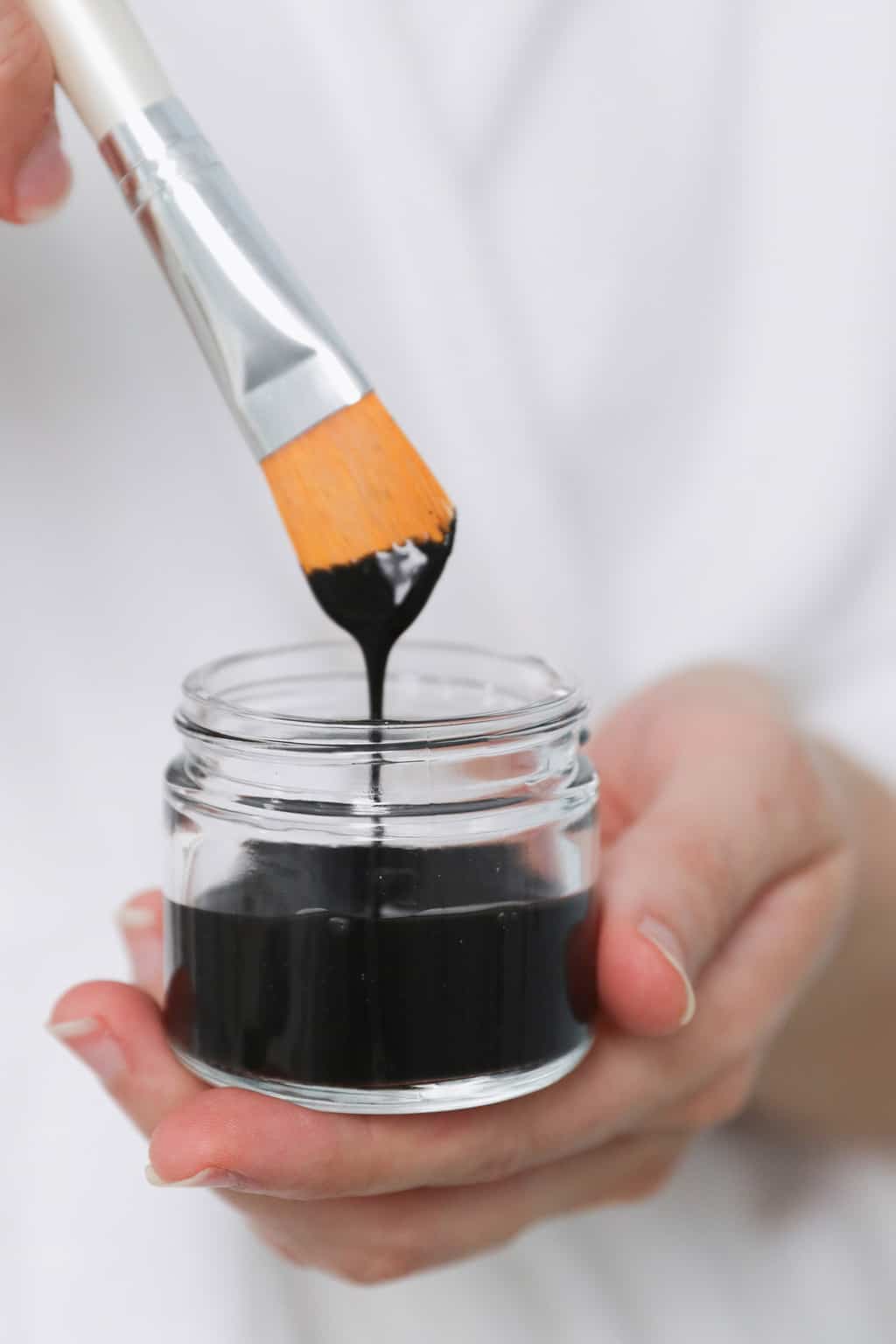
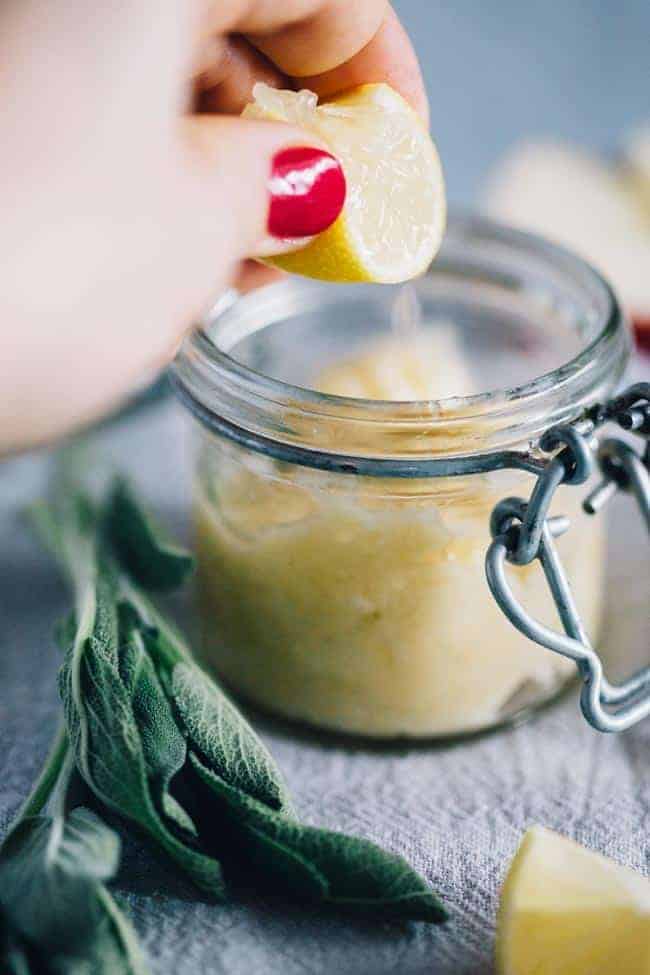
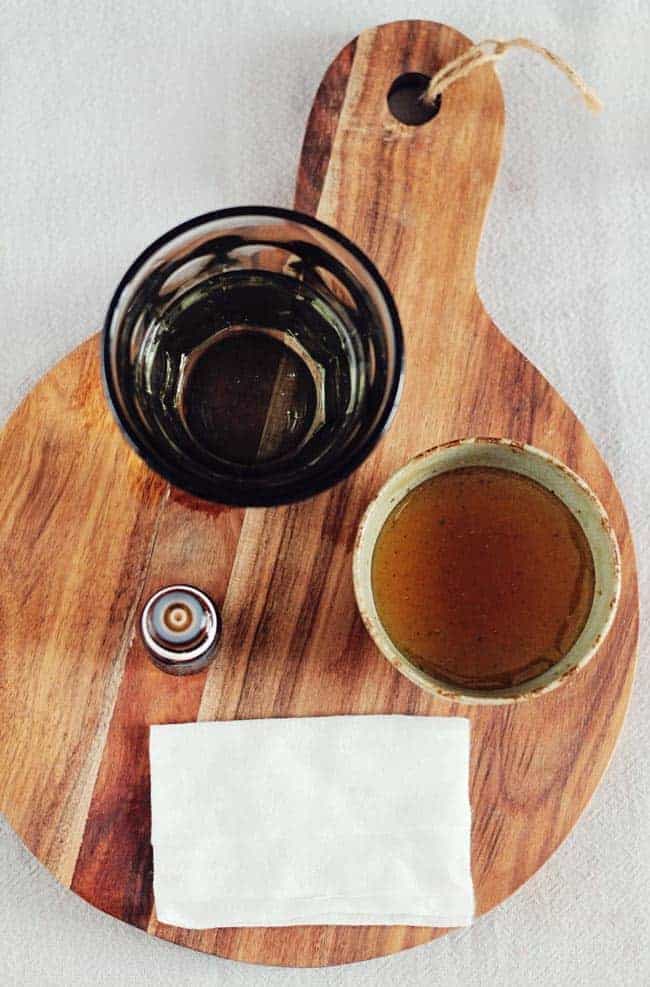
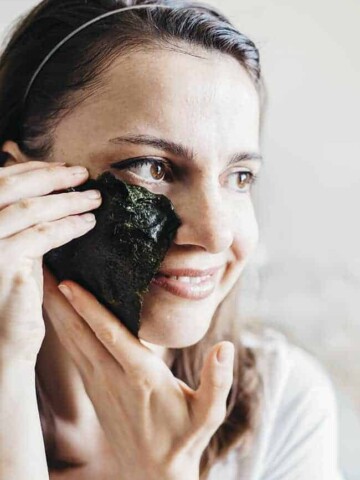
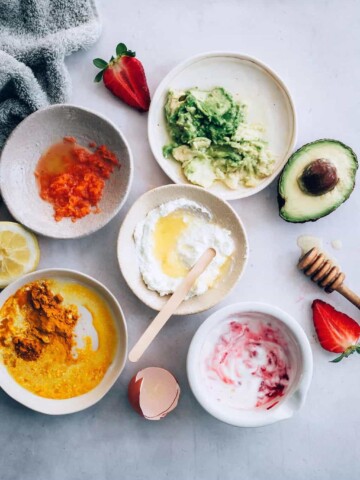
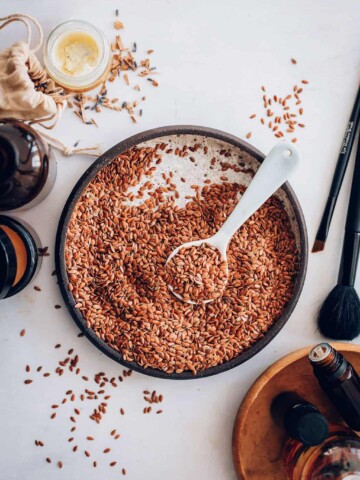
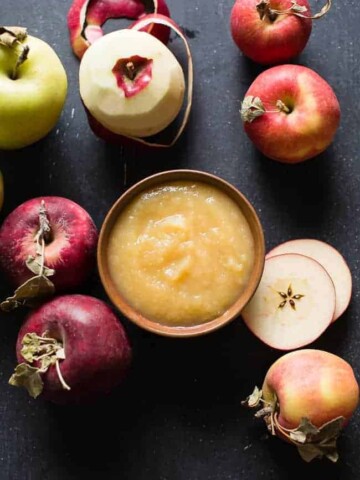
natalia h says
Can you make a batch and save some for later or do you have to make just the enough amount to use at a time? (I want to make some for my cousin, she has oliy skin, but I don't know if the mix will keep. Help.
girl C says
My skin is just too oily! I'm looking for some masks to try...really excited to do these masks!